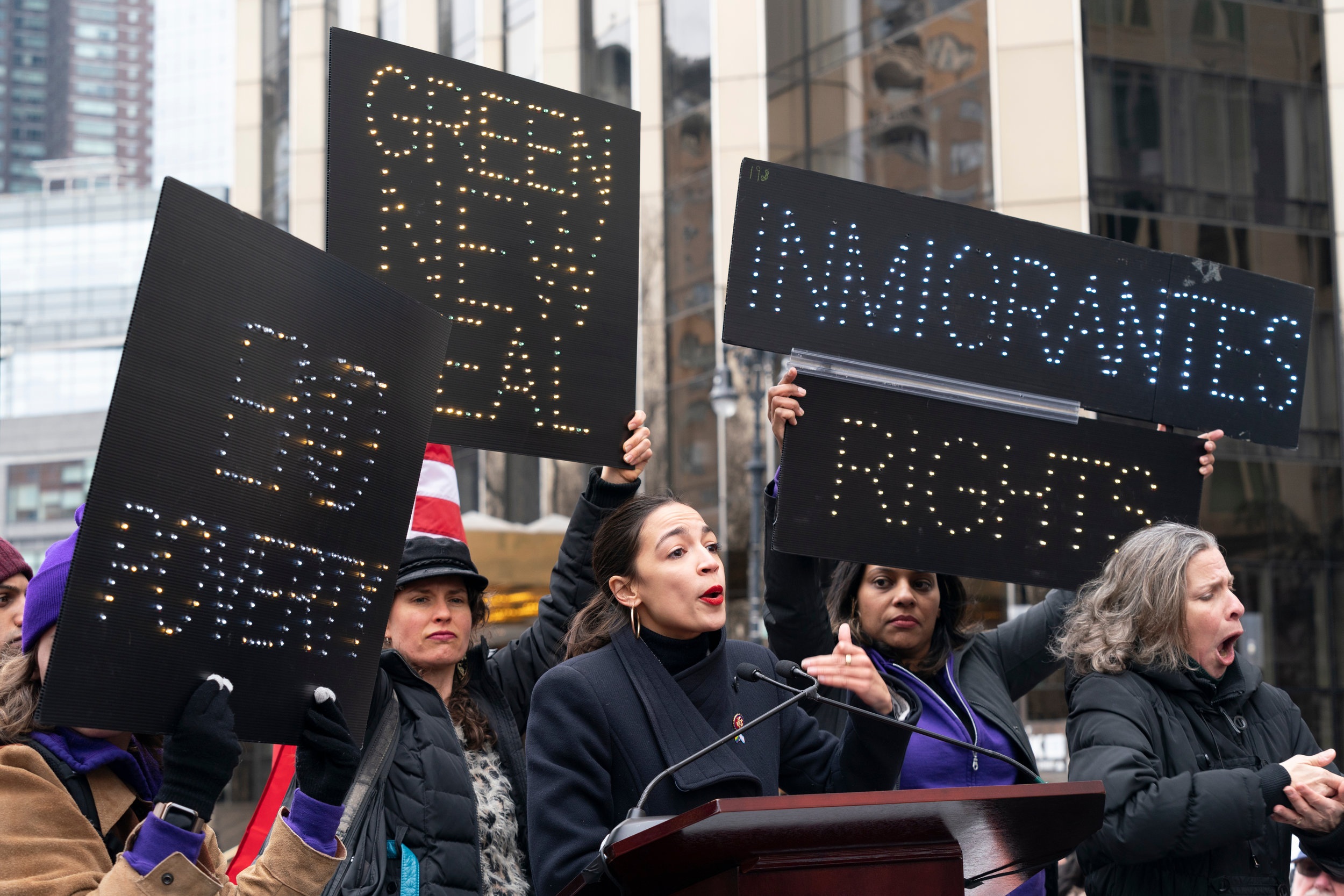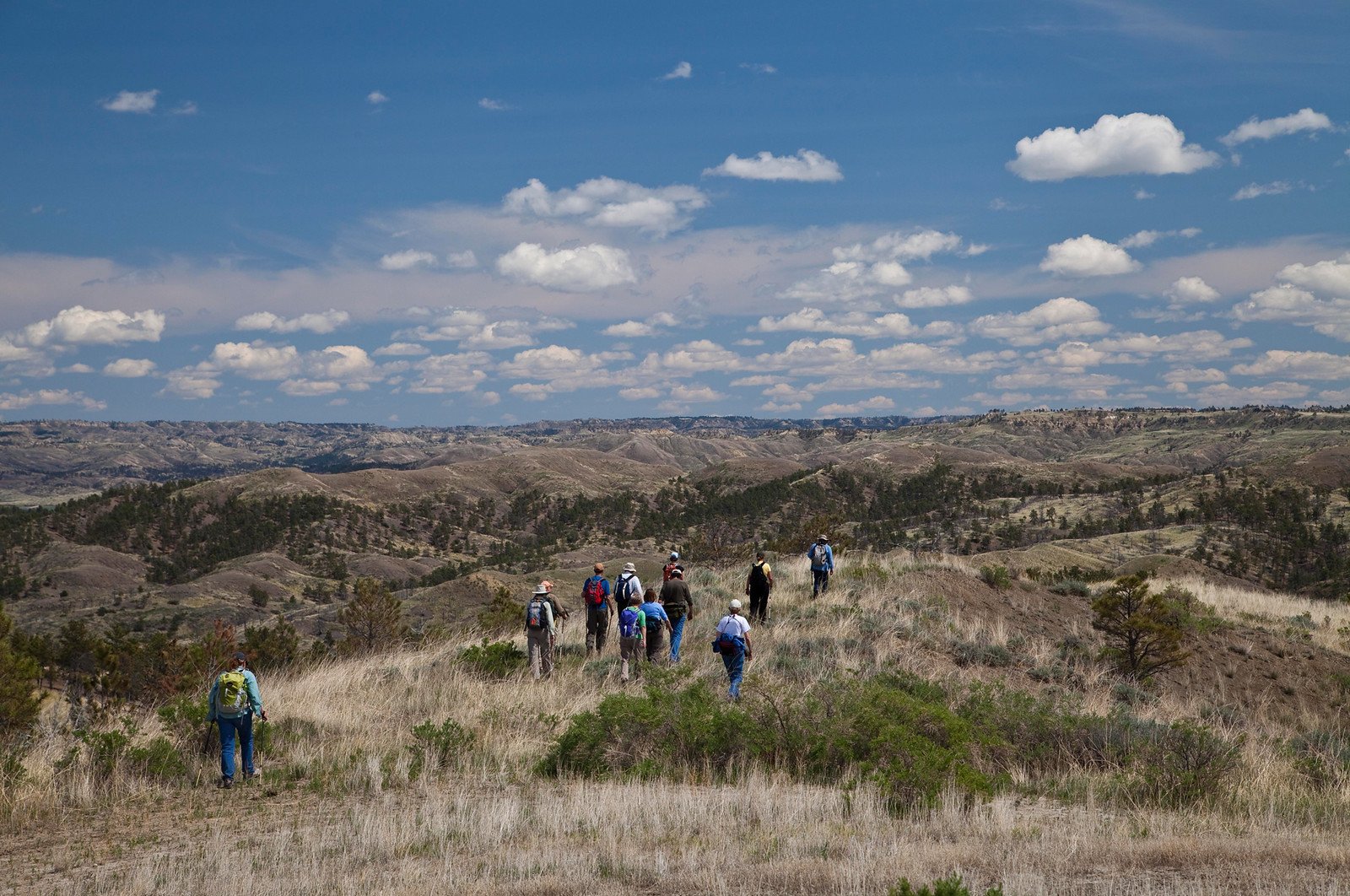WASHINGTON D.C. March 26th, 2019: Congress rejected a proposal that would create a much discussed and publicized Green New Deal last Tuesday. It was defeated by a vote of 57 to 43, with all the the 43 minority senators voting ‘present’ – a neutral selection. Senate Majority Leader Mitch McConnell called the resolution to a vote earlier than senate democrats would have liked.
Two days later, McConnell said “After months of enthusiastic declarations of support, after tripping over one another to prove their devotion to the far-left core of the new Democratic Party, the vast majority of our colleagues across the aisle were unable to vote against even an obviously ludicrous proposal to tank the U.S. economy.”
Rep. Alexandria Ocasio-Cortez of New York introduced America to the Green New Deal in February; a radical call for America to combat human-caused global climate-change by working towards a carbon-neutral country with a modern renewable energy sector by 2050 through means of a massive national mobilization. She and other democrats referred to the vote as a political stunt and said the resolution was more about sparking debate.
NATIONAL HARBOR, MD – MARCH 6, 2014: Senator Mitch McConnell (R-KY) speaks at the Conservative Political Action Conference
Not a ye to be Heard
While the Green New Deal has garnered large support from house and senate democrats as well as most of the 2020 presidential candidates, all voices which didn’t echo ‘no’ across the senate chamber, stated only that they were present. Why might this be?
The U.S. Global Change Research Program released the Fourth Annual Climate Assessment last November. Perhaps it’s no surprise that Rep. Ocasio-Cortez followed it up with the Green New Deal only three months later.
It calls for fundamental changes to America’s economy and infrastructure that would, for better or worse, create upheaval and challenges on a nation-wide scale. Was McConnell calling a few bluffs bringing the resolution to a vote – testing the waters of the opposition‘s resolve on such a drastic action?
The resolution makes references to some titanic undertakings such as “meeting 100 percent of the power demand in the United States through clean, renewable, and zero-emission energy sources,” “achieving net-zero greenhouse gas emissions,” and “removing pollution and greenhouse gas emissions from the transportation sector,” undertakings of a scope that would cause anyone to have second thoughts.
Mixed Priorities
The resolution states in warning that the American economy will incur 1 trillion dollars of damage from climate-related incidents and lose 500 billion dollars of GDP by 2100. In the same category it warns of wildfires that will rage twice as far and twice as long as those encountered in 2018, the loss of 99% of all coral reefs on earth, and mass human-exodus from climate-affected regions of the planet.
Even if those predictions are 300-400% exaggerated, the resulting catastrophe would still be a significant blow to the well-being of the United States as well as the rest of the world. Furthermore, it doesn’t seem that President Trump’s administration shies away from big spending – that which might be required to pull off a Green New Deal – since a recently passed 2019 budget saw 686 billion dollars appropriated for defense spending; the biggest slice in the biggest pie ever baked by the federal government.
The resolution includes provisions for a revolutionized agricultural sector with zero emissions and investing in sustainable farming and land use practices that increase soil health. It also mentions the cleanup and management of air and waterborne pollution on several occasions.
Any one of these endeavors would be a monumental and noble undertaking, but revamping the American agricultural, energy, and transportation sectors as well as general infrastructure seems unrealistic.
Unity or Bust
It’s been suggested by some news outlets such as Reuters that the vote was an attempt to sow dissent among the democratic party. One interesting angle is that the resolution, as crammed as it is with projects relating to climate change, constantly makes reference to deeply progressive social issues.
Right after noting the degree to which the American economy impacts the environment, the resolution goes on to express the desire to radically advance things like good healthcare, affordable housing, competitive wages, and more.
In fact, it claims that climate change has “exacerbated systemic racial, social…. injustices,” and provides a long list of people who are disproportionately affected in society by climate change. This paragraph includes rural communities, people of color, immigrants, and even the simple designation of ‘women.’
It would be interesting to read literature suggesting that women are more affected by climate change than men, yet the resolution lists no studies. During an introduction to the senate, the objectives of the Green New Deal included “promoting justice and equality,” just below “securing clean air and water, climate resilience…”
Moreover, the next set of provisions include “ensuring businesspersons are free from unfair competition; and providing higher education, high-quality health care, and affordable, safe, and adequate housing to all,” just below “removing pollution and greenhouse gas emissions from the transportation and agricultural sectors.”
It also discusses gender pay-gaps, racial economic-divides, income-inequality, and stagnant wages.
It could be that this constant social-justice weave in the fabric of an already enormous piece of proposed legislation acts like a contract – ensuring maximum support from fellow dems, as to oppose it would be to oppose the dramatically social-centered platform the democrats have built for themselves over the last few years.
Democratic Senator Dianne Feinstein was criticized by Green New Deal supporters after she was filmed last month telling children she opposed the resolution because the damage it would cause to the American economy was too great. At crunch time, she voted ‘present’ in support of her democratic colleagues.




